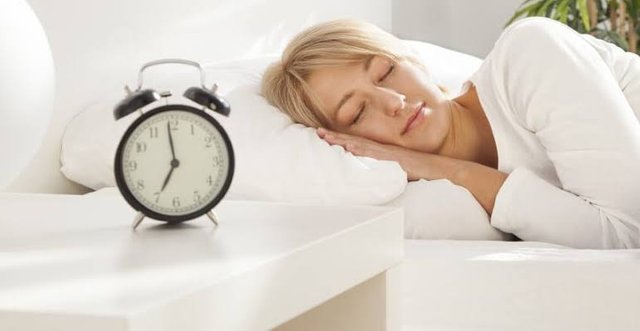Do You Really Need 8 Hours of Sleep Each Night?

Sure, you know that sleep matters. Chances are, you also know (from experience) that being awake for too long makes you delirious… or worse.
But aside from that, what makes sleep important? Is getting a solid seven to nine hours each night all that it’s chalked up to be? Can you function on less? Even if these aren’t the kind of questions that keep you up at night, you should know whether you’re catching enough ZZZs and what that means for your health. Here’s why.
“Sleep is probably the most important thing you can do for your body in terms of your general welfare, health, and happiness,” says sleep expert James Maas, PhD, former chair of psychology at Cornell University. Not sleeping enough has been linked to heart attacks, strokes, type 2 diabetes, and Alzheimer’s disease, he says.
Sleep deprivation also factors into your risk of developing high blood pressure, coronary heart disease, and overall cardiovascular disease, according to the American Heart Association. Over time, not getting enough sleep may contribute to a person’s risk of developing breast cancer or colorectal cancer, Maas says.
Lack of sleep weakens the immune system, which could explain the link between sleep deprivation and disease. Your immune system takes sleep as a cue to release proteins called cytokines, which respond to inflammation, infection, and stress. Not getting enough sleep could mean you’re making fewer cytokines as well as fewer of the antibodies and cells that ward off infections.
So, the connection between sleep and health is clear. But sleep also affects your emotions, reaction time, and cognition, Maas explains. How much sleep you get in a night determines whether you’re able to remember information, learn new information, be creative, and make critical decisions. Basically, without enough sleep, you can’t function.
Losing some 20 minutes of sleep one night during the week won’t come with consequences, but losing that much sleep each night of the week adds up. Losing even more sleep can be dangerous.
“If you have lost an hour or so from what you need every day, at the end of the week, you’re no better off cognitively than someone who’s legally drunk,” Maas says. Not only that, if you’re awake for 18 hours or more at a time, you’re no better off than someone with a blood alcohol content (BAC) of 0.05 percent. Being up for 24 hours or more means you’re functioning as poorly as someone with a BAC of 0.10 percent — in other words, not well at all. For reference, a person is considered drunk when he or she has a BAC of 0.08 percent or higher.
“From high school right through middle age, we’re kind of a nation of walking zombies. Most people need at least one more hour from what they’re getting right now to function at a high level,” Maas says. What does that look like? You’re more alert and energetic. You’re not in emotional distress. You’re not anxious or irritable, he says.
Let’s be honest, though. Clocking some seven hours a night shouldn’t have to mean choosing that ever-elusive extra hour of sleep over a beer with friends, a head start on a project, or this week’s episode of The Bachelor, right? Well, that depends on how much sleep you need.
The average adult needs about seven to nine hours of sleep each night, according to the National Sleep Foundation. Teenagers need about eight to 10 hours, and adults 65 and older need about seven to eight hours. These are just averages, though. Some people require more or fewer hours of sleep, Maas says. For example, short sleepers function best on less than seven hours of sleep. How much sleep you need has to do with genetics, he says.
You can know you’re getting enough hours when you’re able to sleep until you feel awake and alert in the morning. That energetic feeling shouldn’t dip too much, or at all, from around noon to 1 p.m. Maas calls this number of hours a personal sleep quotient. To know whether you’ve reached it, cut back on 15 minutes of sleep. If you don’t feel as energetic, return to the same amount of sleep as before. (Heads up: You’ll still need as much sleep as you age, but chances are you’ll be getting it in blocks due to changes in brain functioning, blood flow, and the arteries hardening, he says.)
Once you figure out the right number of hours for you, aim to fall asleep and wake up at the same time all week, as often as possible. Just don’t underestimate how much sleep you need to feel your best.